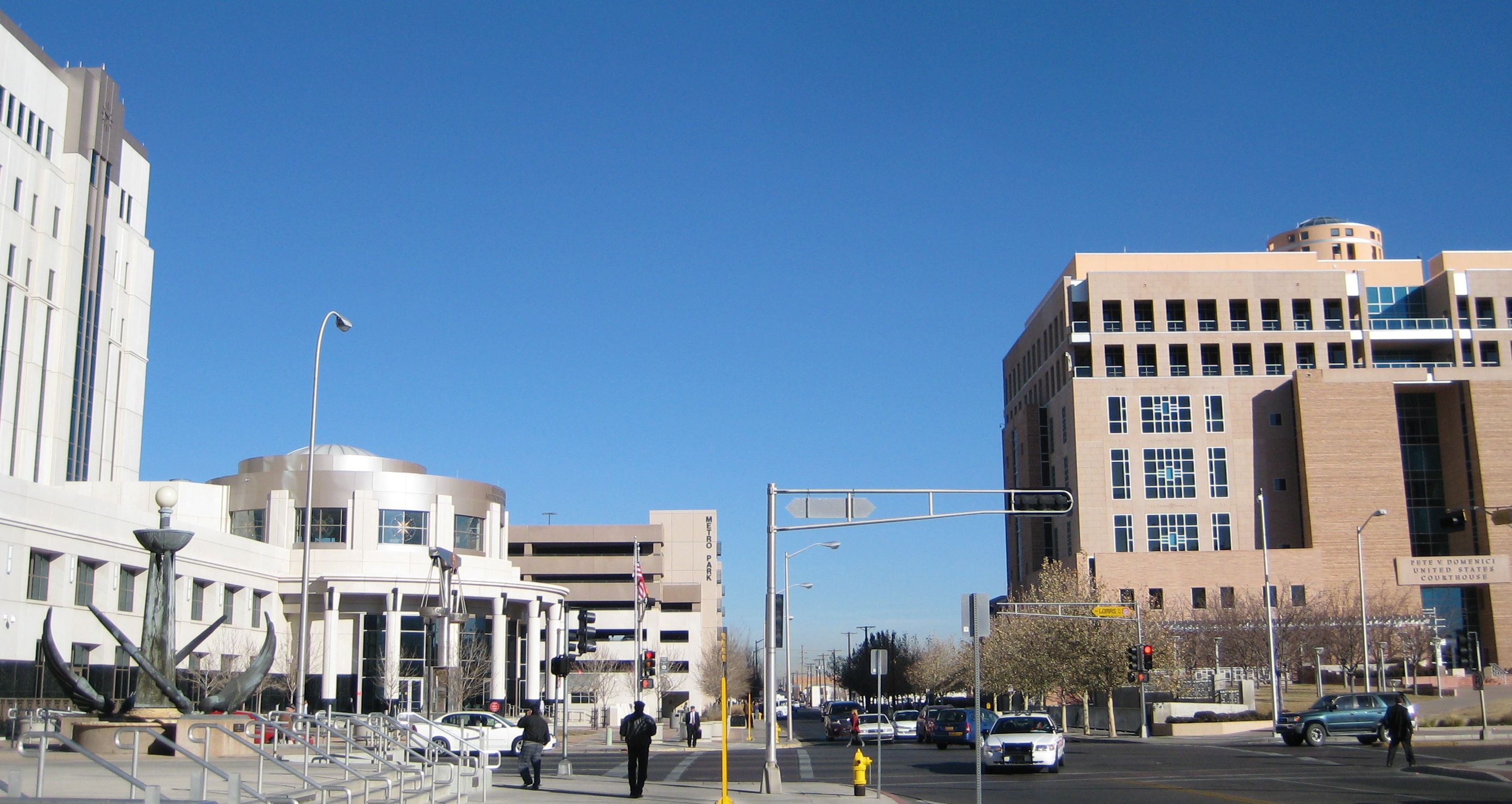Why are we here in Albuquerque at Phil Mocek’s trial?
 [Bernalillo County Metropolitan Court (left); U.S. District Court for the District of New Mexico (right); Albuquerque police (center, turning towards camera)]
[Bernalillo County Metropolitan Court (left); U.S. District Court for the District of New Mexico (right); Albuquerque police (center, turning towards camera)]
Why are we here? We’re here in Albuquerque to observe the the trial of Phil Mocek, which began yesterday and continues today. We’re here with other folks who’ve flown, driven, and ridden trains and buses from across the country to show our support for those who question the illegitimate claims to authority of the TSA and try to document what happens when you try to travel without showing ID.
Once we are able to process them, we’ll be posting audio recordings and photos as well as more details from the trial.
Before we get to what’s happened in court, however, we need to answer a preliminary question: Why is this case in Bernalillo County Metropolitan Court (above, left) and not across the street in Federal court (above, right)?
That question seems especially natural to those who read the hit-piece on the front page of the Albuquerque Journal the day before the trial began. Apparently intended to prejudice potential jurors against Mr. Mocek, and posted approvingly by the District Attorney on Twitter and her Facebook wall, that story focused on (false) claims that passengers are “required” to show government-issued ID to fly.
But the reason this case isn’t in Federal court is that TSA procedures (and, more importantly, neither any Federal law or regulation, the U.S. Constitution, or international human rights treaties) don’t require travelers to show ID and don’t prohibit photography or recroding at TSA checkpoints.
If there were any such Federal rule against what Mr. Mocek was doing, the TSA would have called the FBI, not the local police, and Mr. Mocek would have been charged with Federal offenses.
That didn’t happen. Mr. Mocek has never been accused of any violation of any TSA or other Federal regulations or laws. He was arrested and is on trial on (false) state and local charges precisely because the TA and Albuquerque police objected to his exercising his rights under Federal law.
On the contrary, the first day of this trial confirmed that, as we’ve said all along:
- You have the right to travel without showing ID. TSA “officers” know this, are trained to deal with it, and do so every day, despite signs to the contrary at every airport and on the TSA’s website.
- You have the right under Federal law and TSA rules to record and photograph throughout TSA checkpo0ints, as long as (they say) you aren’t “interfering” with screening or photographing the displays on the X-ray machines and other monitors.
In their opening statements, both Assistant District Attorney Daniel Rislove and defense attorney Nancy Hollander agreed that ID is not required to fly. That was confirmed by the sole witness to testify (for the prosecution) before the trial recessed yesterday.
Lead Transportation Security “Officer” Jonathan Breedon (he admitted that TSA checkpoint personnel are not law enforcement officers), who was in charge of the “travel document checking station”, testified that the TSA doesn’t require anyone to have or show ID to travel. You can travel without ID, and, “It happens all the time. We have a procedure for that,” he testified, although he claimed that the procedure for flying without ID is secret “Sensitive Security Information,” as is the form that is given to each person who flies without ID for them to sign, and which we posted online years ago.
Cross-examined about the version of the form from 2008 on our website, he said the current form has different typography and a few additional check-boxes at the bottom, but contains essentially the same information. If anyone has a copy of the current version of the form, please let us know ASAP.
What the TSA doesn’t have procedure for, apparently, is what to do when a traveler exercises their right to photograph or record what is being done to them. Under cross-examination, Lead TSO Breedon admitted that the statement to Mr. Mocek on the video played in court, “It’s a Federal checkpoint. You can’t take pictures here,” was false. But despite knowing that was false, the TSA staff called in the local police and then stood aside while they arrested Mr. Mocek on false charges.
The trial will resume at 9:30 Friday morning with testimony from the Albuquerque police, followed by the case for the defense. The case could go to the jury Friday afternoon.
To be continued…